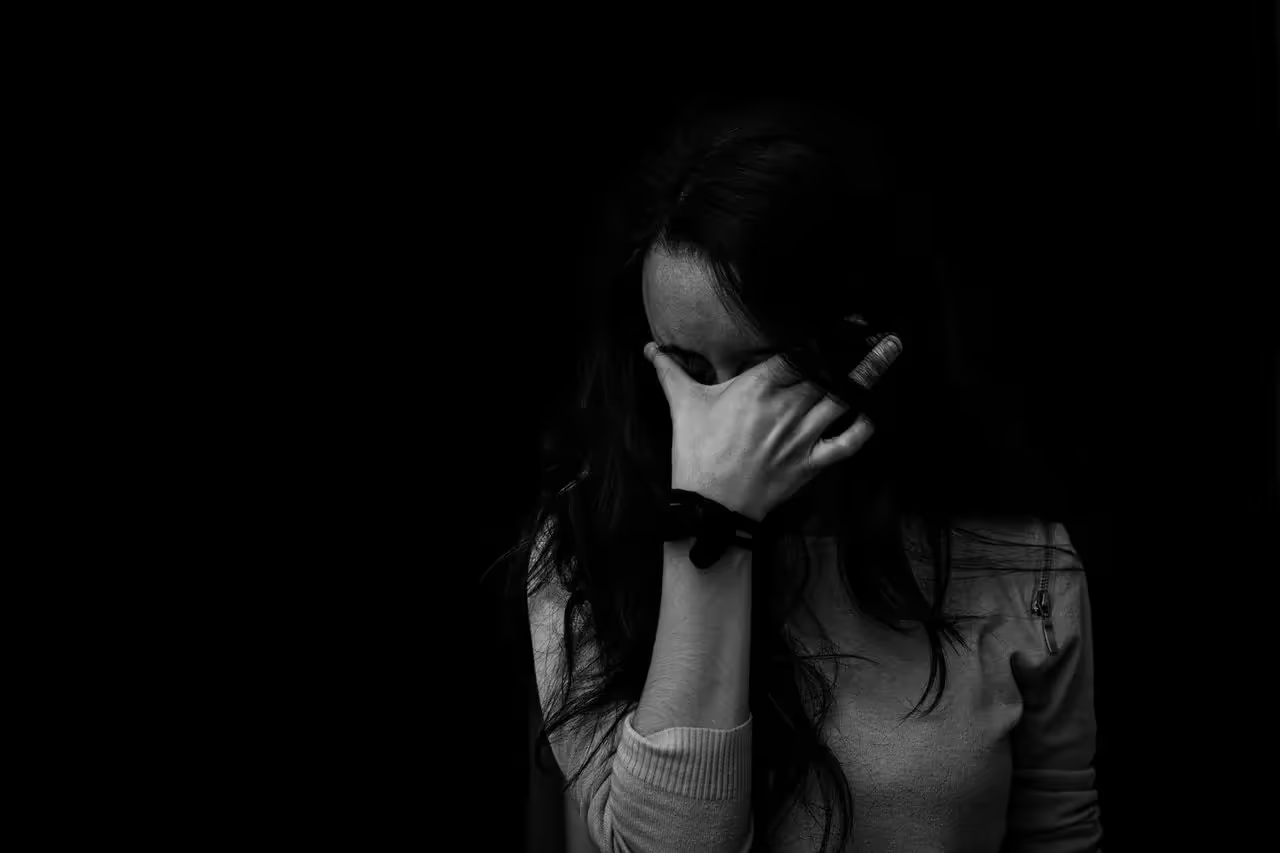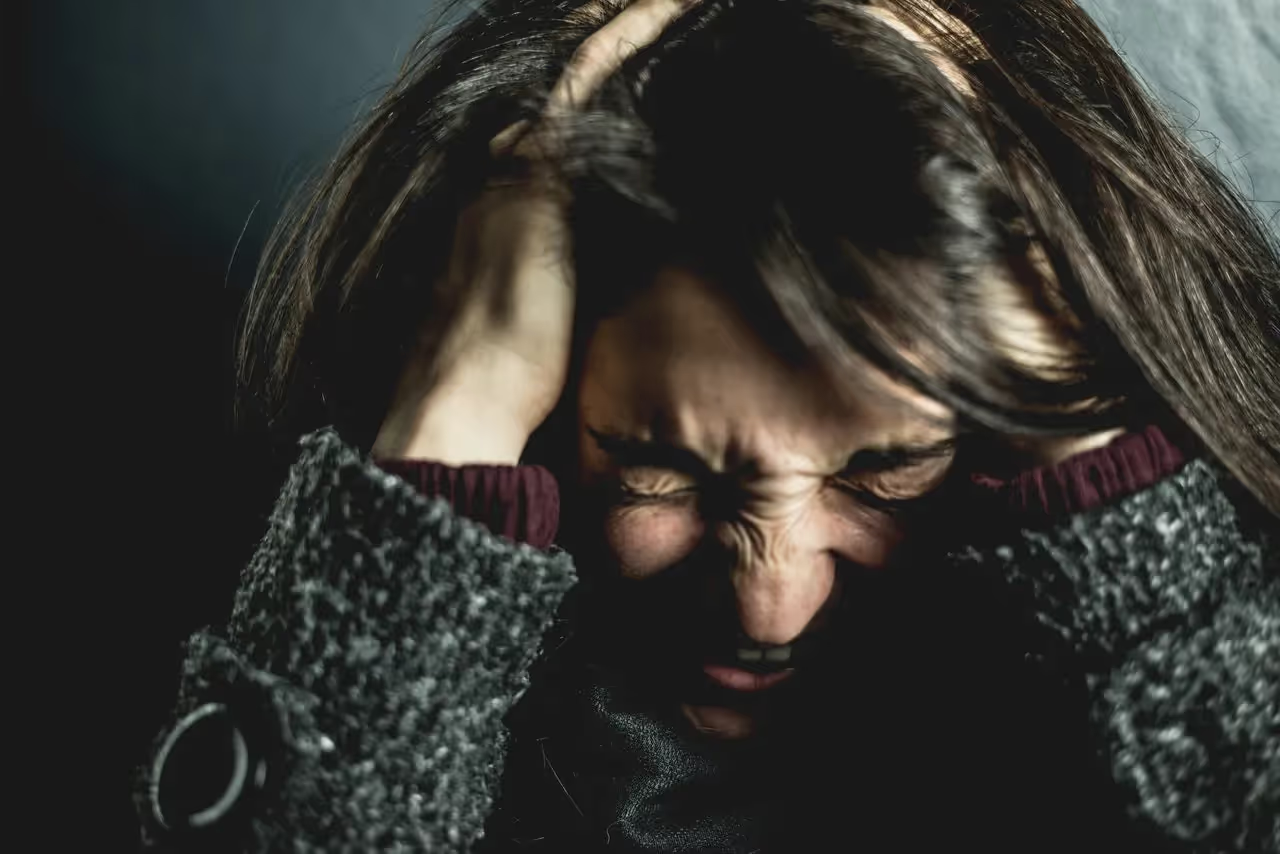A study conducted showed that in the years 2001 - 2004, an estimated 2.4% of adolescents had agoraphobia at some point in their life. The study also showed...
.avif)
A study conducted showed that in the years 2001 - 2004, an estimated 2.4% of adolescents had agoraphobia at some point in their life.
The study also showed an estimated 1.3% of U.S. adults experience agoraphobia at some time in their lives.
Although this study was conducted years ago, agoraphobia cases are currently on the rise.
Before moving forward about how to deal with this type of anxiety. Let's define it.
Agoraphobia is a type of anxiety disorder where one fears and avoids places or situations that might cause them to panic, feel trapped, helpless or embarrassed. This type of anxiety disorder develops when someone has experienced one too many panic attacks.An agoraphobe fears actual or expected situations, like being in public, open, or enclosed spaces, standing in a queue, or being in a crowd.

Agoraphobia is self-diagnosable. All you have to do is look out for certain symptoms.Agoraphobes normally have a fear of or get anxious in:Closed up spaces like the elevator.CrowdsQueuesPublic transportOpen spacesAgoraphobes also:Need people to accompany them to places that they fear or feel anxious about.You avoid situations that make you anxious.Exposure to situations you have a phobia of always leaves you very anxious and distressed.Your fear or anxiety is normally more than the actual danger. If there is any.If you find yourself with any of these symptoms, your next step should be to consult a doctor.A physical exam would be carried out, to rule out other conditions that could be causing the symptoms.If you are diagnosed with Agoraphobia, you must realize that it is curable. So how do you cure and cope with this anxiety?
Treating agoraphobia with psychotherapy, specifically Cognitive Behavioral Therapy(CBT) which is a major form of treatment for anxiety disorders, like agoraphobia.
CBT involves working with a therapist to set goals, make lifestyle changes, and learn practical skills to decrease your anxiety.
It focuses on empowering you with skills that make it easier to tolerate anxiety and face your worries and fears.
It guides you gently to normalcy.
With time you can once again enjoy activities that anxiety deprived you of.You can always opt for a therapist that does home sessions if you cannot leave your home.
During the initial stage of the treatment, home sessions are welcome.Here are some of the skills and knowledge you will learn during psychotherapy.Triggers for a panic attack or its symptoms.What can cause a panic attack to escalate?How to cope with your anxiety.How to face your fears and worries, especially those connected to being in public.
Desensitization is also known as exposure therapy. This helps to safely face the places and situations causing fear and anxiety.
Normally, antidepressants and anti-anxiety medications are given to agoraphobes.
Several Antidepressants are used to effectively treat agoraphobia like fluoxetine and sertraline.
Anti-anxiety drugs are sometimes administered by doctors for short-term use. They can be quite addictive and can become a problem for individuals with long-term anxiety problems.
Living with Agoraphobia can make you feel like a prisoner. Agoraphobia can be like a wall standing in between you and your life. Thankfully, it can be managed. Here's how you can cope with Agoraphobia.

Consistency is a major key to coping with anxiety. Adhere strictly to the doctor's instructions, and take your medications as prescribed. Attend your therapy sessions and communicate frequently with your therapist.
Whatever skills you learn from your CBT always do your best to apply them in your daily life and improve on them.
It might be a little challenging at first but with consistency, you will make progress
Learning coping and calming skills would help in the long run. These skills will teach you how to self-soothe and calm yourself, especially in situations that set off your anxiety or cause panic.
Techniques like meditation, yoga, and visualization will help soothe your anxiety. Practicing these techniques when you are calm, will make it easier for you to put them into action in stressful situations.
Systemic sensitization therapy involves training yourself to be less sensitive to stimuli that result in anxiety.
This therapy takes time but one little step forward brings you ever closer to your goal. In this therapy you will repeatedly practice the five Rs -React, Retreat, Relax, Recover, Repeat. Always remember these five Rs and implement them in situations that trigger your anxiety.
Systemic desensitization therapy is a gradual process. So be patient with yourself.
This would definitely be something you don't look forward to. However, repeatedly putting yourself out there or going to places that make you anxious will reduce the amount of fear you feel in those places. With time you find the place or situation less scary and uncomfortable.
You don't have to go alone. You can go with your friends or family for the first couple of times.
If you cannot completely abstain from the use of alcohol, limit your use of it to the barest minimum. You should apply this to caffeine as well. As it can increase symptoms of anxiety and escalate your panic attacks.
A healthy body equals a healthy mind. Take good care of your body. Eat, rest, exercise, and sleep.
Treat yourself to little things that you enjoy, like a spa day. Also, ensure your diet contains sufficient fruits and vegetables.
Another way of caring for yourself is surrounding yourself with people who are dealing with the same problems or have dealt with it. This way you build healthy connections that will eventually benefit your health.
Living and coping with Agoraphobia is not easy. You should never be ashamed to ask for help or talk to a Doctor.
Always remember to be patient with yourself. Freeing yourself from the shackles of Agoraphobia takes time. Understanding this and being consistent with your treatment will eventually yield positive results.
Ignoring anxiety can exacerbate symptoms and make it more challenging to manage over time. This can result in a negative impact on your personal, professional, and social life, leading to feelings of isolation and even depression.
Other activities which have been found helpful in reducing both immediate feelings of anxiousness and long-term anxieties associated with chronic disorders include yoga, journaling, nature walks, art therapy, volunteering, and other low-stress activities. Additionally, developing a healthy lifestyle incorporating adequate sleep, physical activity, and nutritious meals can help reduce overall stress levels.
Yes, Medicaid provides insurance coverage for therapy services specifically designed to help individuals struggling with anxiety, depression, and other mental health conditions.
The duration of anxiety counseling varies for each individual, depending on the severity of their anxiety and their progress in therapy. Our therapists will regularly assess your progress and adjust your treatment plan as needed.
To reduce your anxiety, you can practice relaxation techniques such as deep breathing, progressive muscle relaxation, guided imagery, and mindfulness practices. Additionally, regular exercise has been found to be beneficial in managing stress and improving mental health.
It's important that you feel comfortable discussing personal matters with your therapist in order to open up and get more out of therapy sessions; therefore finding someone who meets certain criteria like experience level, expertise areas, and personality is key when selecting a therapist who can give meaningful feedback about how best handle issues related to anxiety or other mental health concerns.